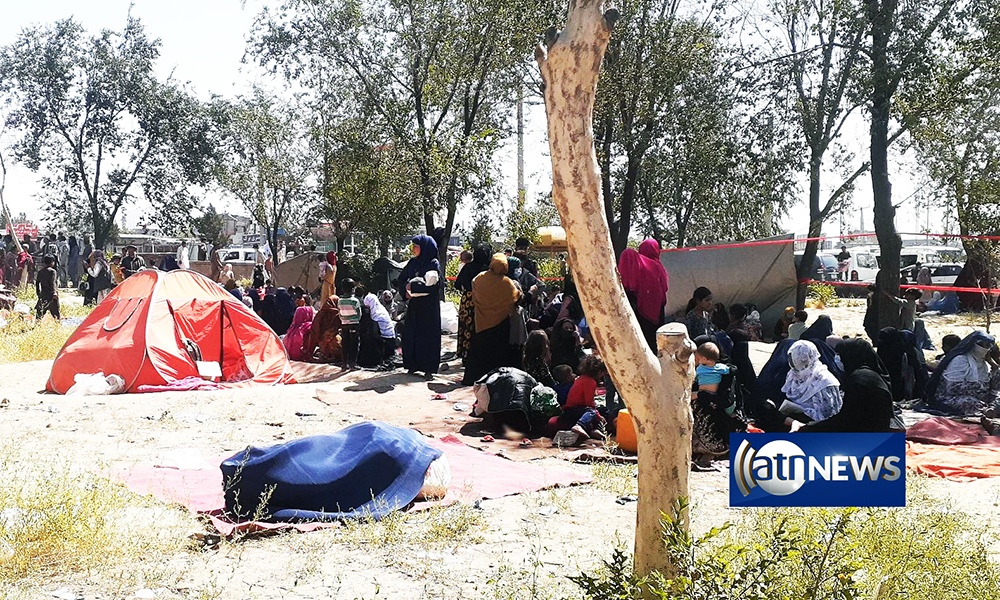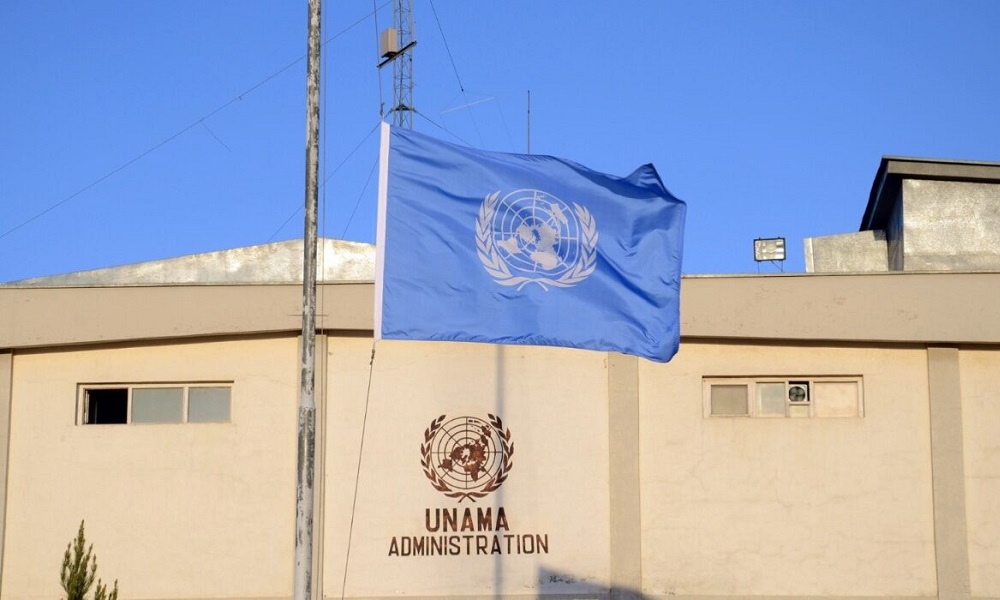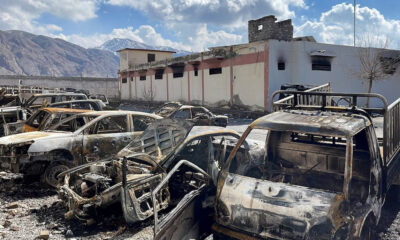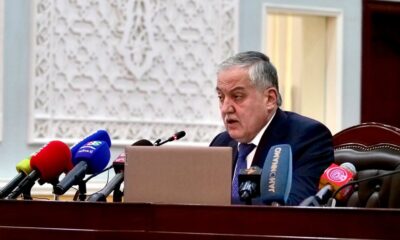Latest News
Hundreds of families flee to Kabul from embattled northern provinces

Hundreds of families have fled to Kabul to escape the violence in the north of the country.
Many of these families are now living in tents, in the heat of summer, in Sar-e-Shamali and Khairkhana areas in Kabul.
Most of these internally displaced people (IDPs) fled to Kabul from Kunduz, Takhar and Baghlan provinces, an Ariana News reporter who visited the area said.
Some of these families say they were forced to flee their homes due to recent conflict in their provinces, and left all their belongings behind.
These families use only tents for shelter.
They say that government has not helped them yet and have called on the authorities to assist.
Dozens of children are among the displaced, according to an Ariana News reporter.
These IDPs, whose exact numbers are unknown, are facing a shortage of drinking water and medicine.
Rahmuddin, one of the displaced who fled Kunduz province, told Ariana News that the Taliban were using civilian homes in Kunduz province as shields and that they had been forced to flee.
“There was a lot of terror in the city of Kunduz, and the bodies were lying on the roads. The Taliban were very brutal and made people their shields,” Rahmuddin said.
He says that they are facing many problems and so far only the residents of Kabul have provided them with water and food, but that government has not yet helped.
This comes after the UN stated in a report last month that at least 330,000 people have been displaced in the last seven months due to an increase in conflict across Afghanistan.
“So far in 2021, 330,000 people have been displaced by conflict across Afghanistan. Another five million people remain displaced since 2012,” the United Nations Office for the Coordination of Humanitarian Affairs (UNOCHA) reported.
As conflict intensifies in northern Afghanistan and other parts of the country, UNHCR, the UN Refugee Agency, warned of an imminent humanitarian crisis, saying failure to reach a peace agreement will see further displacement.
Latest News
Tajik foreign minister urges international community to help Afghanistan address its challenges

Tajikistan’s Minister of Foreign Affairs, Sirodjiddin Mukhriddin, has called on the international community to step up assistance for Afghanistan as the country continues to face challenges.
Speaking at a press conference, Mukhriddin said Tajikistan and Afghanistan maintain active coordination between their law enforcement agencies to prevent security incidents along their shared border. He noted that this cooperation remains essential, as the frequency of armed attacks and criminal activity in border regions has increased in recent months.
He said that Afghan authorities had assured Tajikistan they would take necessary measures to stop further incidents and would conduct thorough investigations into any violations.
Mukhriddin emphasized that Tajikistan supports constructive international engagement aimed at improving Afghanistan’s socio-economic conditions. He highlighted that Tajikistan has provided more than 6,000 tons of humanitarian aid to Afghanistan, including food and essential supplies delivered in 2025 to assist communities affected by devastating earthquakes.
The minister also pointed to growing economic cooperation between the two neighbors. Tajikistan has reopened border markets and continues to supply electricity to Afghanistan.
Tajikistan and Afghanistan share a border of more than 1,300 kilometers—over 1,100 km of which consists of waterways and about 190 km of land boundaries.
Meanwhile, Zafar Samad Director of the Drug Control Agency under the President of the Republic of Tajikistan, has said that last year, 17 incidents of clashes happened with drug smugglers along the border with Afghanistan. As a result, two Tajik forces and 10 Afghan nationals have been killed, he added.
Latest News
Baradar: Afghanistan is not an easy target, but a ‘bitter tree’

Mullah Abdul Ghani Baradar, Deputy Prime Minister for Economic Affairs, warned during a graduation ceremony for soldiers of the Ministry of National Defense that the Islamic Emirate will respond decisively to anyone with ill intentions toward Afghanistan.
He said the country is “not an easy target, but a bitter tree that has made the throats of empires bitter and newborns can never digest.”
Baradar also announced that in the coming days, the Islamic Emirate will introduce tax exemptions of one to five years for domestic and foreign investors, based on the level of investment in new sectors. He also said that the process of distribution of land to manufacturers will be accelerated.
Baradar called on countries to engage in political and economic relations according to the values and principles of the Islamic Emirate, emphasizing that energy and resources spent on conflict would be better used to support one another and strengthen common interests.
Latest News
Fourteen former Afghan government forces killed in last three months of 2025: UNAMA

The United Nations Assistance Mission in Afghanistan (UNAMA), in its latest report on the human rights situation in Afghanistan, stated that 14 members of the former Afghan government forces were killed in the last three months of 2025.
The report noted that during this period, there were 28 cases of arbitrary arrest and detention, and at least seven cases of torture and ill-treatment targeting officials and personnel of the former Afghan government.
According to the report, some of the officials and forces who had recently returned to Afghanistan from Iran and Pakistan were among those subjected to extrajudicial killings, arbitrary arrests, and detentions.
The report also highlighted restrictions on women’s work and movement, executions and flogging of individuals, and disruptions to internet and telecommunications services.
-

 Sport5 days ago
Sport5 days agoHosts and heavyweights advance as AFC Futsal Asian Cup reaches semifinals
-

 Latest News4 days ago
Latest News4 days agoTerrorist threat in Afghanistan must be taken seriously, China tells UNSC
-

 Latest News4 days ago
Latest News4 days agoUzbekistan, Pakistan advance Trans-Afghan railway project
-

 Sport4 days ago
Sport4 days agoWinter Olympics finally underway, ATN to broadcast exclusively across Afghanistan
-

 Sport4 days ago
Sport4 days agoAfghanistan beat West Indies in final T20 WC warm-up match
-

 Sport3 days ago
Sport3 days agoIndonesia shock Japan to reach historic AFC Futsal Asian Cup final
-

 Regional5 days ago
Regional5 days agoPakistan sends helicopters, drones to end desert standoff; 58 dead
-

 Sport3 days ago
Sport3 days agoMilano Cortina 2026 Winter Olympics: What You Need to Know
























